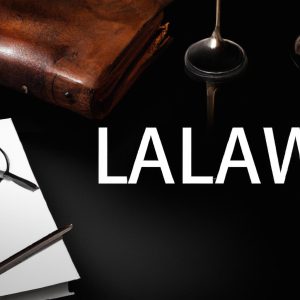In the complex and often perplexing world of probate, creditors hold a significant role in the distribution of assets left behind by a deceased individual. As experienced legal professionals at Morgan Legal Group in the heart of New York City, we have a deep understanding of the intricacies and nuances surrounding the rights of creditors during the probate process. Join us as we explore the rights creditors possess, the necessary steps they must take to assert those rights, and the potential implications for estate administration. Having a thorough understanding of creditors’ rights is crucial for all parties involved in the probate process, and our expertise can provide valuable insight into this crucial aspect of estate administration.
Understanding Creditors’ Rights in Probate
During the probate process, creditors hold certain rights that allow them to pursue repayment of debts owed by the deceased individual’s estate. It is essential for both creditors seeking payment and estate executors looking to properly administer the estate to comprehend these rights. Here are some important points to consider:
- Creditors have the right to file a claim against the deceased individual’s estate for any outstanding debts. These claims must typically be filed within a specific timeframe, known as the statute of limitations. Once a claim is filed, the executor of the estate must review it and determine its validity. If the claim is deemed valid, the creditor may receive repayment from the assets of the estate. However, if the estate does not have sufficient assets to cover all outstanding debts, creditors may not receive full repayment. It is crucial for both creditors and estate executors to understand these rights and obligations to ensure a fair and lawful probate process.
Navigating the Creditors’ Claims Process
Creditors have specific rights during the probate process that allow them to claim debts owed by the deceased individual. It is vital for creditors to understand these rights to navigate the claims process effectively. One key right that creditors possess is the ability to file a claim with the probate court to request payment for debts owed. This claim must typically be filed within a certain time frame, as specified by state law.
Additionally, creditors have the right to be notified of the probate proceedings so that they can take steps to protect their interests. This notification allows creditors to monitor the progress of the probate case and ensure that their claim is included in the final distribution of assets. It is crucial for creditors to stay informed and actively participate in the process to increase their chances of receiving payment for the debts owed to them. The probate process can be complex and time-consuming, but understanding and asserting your rights as a creditor is essential in securing payment for the debts owed to you.
Ensuring Fair Treatment for Creditors in Probate Proceedings
Creditors play a crucial role in probate proceedings as they have legitimate claims to assets owed to them by the deceased. It is essential for creditors to receive fair treatment during the probate process to ensure that their rights are protected. This includes being notified of the probate proceedings, having their claims reviewed and considered, and receiving timely payment for their debts. As legal professionals, we are committed to ensuring fair treatment for all parties involved in the probate process, including creditors.
In conclusion, creditors hold significant rights during the probate process, and it is crucial for them to understand and assert these rights to receive fair treatment. As experienced legal professionals, we are dedicated to providing valuable insight and guidance to creditors and estate executors to ensure a smooth and lawful probate process. Contact us today to learn more about how we can assist you with your probate needs.Ensuring Fair Treatment for Creditors During the Probate Process
The probate process is designed to uphold the integrity of the legal system and protect the rights of all parties involved, including creditors. Creditors have specific rights that must be respected in order to ensure fair treatment and maximize their chances of recovering debts owed to them by the deceased individual’s estate. These rights include timely notice, equal treatment, and priority of claims.
Timely Notice: Creditors must be provided with timely notice of the probate proceedings to allow them to file a claim against the estate. This notice should be given within a specified time frame, typically a few months after the death of the individual.
Equal Treatment: Regardless of the size of their claim or their relationship to the deceased, creditors should be treated fairly and equally. This means that all creditors should have the same opportunity to recover their debts from the estate.
Priority of Claims: Creditors’ claims should be paid in a specific order, according to state law, before any assets are distributed to beneficiaries. This ensures that all creditors have a fair chance of recovering their debts.
In order to ensure fair treatment for creditors in probate proceedings, it is essential to follow the proper legal procedures, accurately assess creditors’ claims, and communicate openly and transparently throughout the process. By upholding the rights of creditors, we can promote trust and confidence in the probate system and protect the interests of all parties involved.
Maximizing Recovery for Creditors in the Probate Process
During the probate process, creditors have certain rights to ensure they are able to recover debts owed to them by the deceased individual’s estate. It is important for creditors to understand these rights in order to maximize their chances of recovery. One key right that creditors have is the ability to file a claim against the estate for any outstanding debts. This claim must be filed within a specified time frame, typically a few months after the death of the individual. Creditors should be diligent in gathering documentation to support their claim, such as invoices, contracts, or other evidence of the debt owed.
In addition to filing a claim, creditors also have the right to be notified of the probate proceedings and to receive notice of any court hearings related to the distribution of assets. This allows creditors to stay informed about the progress of the probate process and to raise any objections or concerns they may have. Creditors should also be aware that there is an order of priority for debt repayment during probate, with secured creditors typically being paid first followed by unsecured creditors. By understanding their rights and taking prompt action, creditors can increase their chances of recovering the debts owed to them during the probate process.
Q&A
Q: What are the rights of creditors during the probate process?
A: Creditors have the right to file a claim against the estate of the deceased person to collect any debts that are owed to them.
Q: How do creditors file a claim during the probate process?
A: Creditors must submit a written claim to the executor of the estate within a certain timeframe set by state law.
Q: What happens if a creditor’s claim is approved during probate?
A: If a creditor’s claim is approved, they will receive payment from the assets of the estate before any remaining assets are distributed to the heirs.
Q: Can creditors challenge a probate court’s decision regarding their claim?
A: Yes, creditors have the right to challenge a probate court’s decision if they believe their claim was unjustly denied.
Q: Are there any limits to the amount of debt that creditors can collect during probate?
A: Creditors can only collect up to the total value of the assets in the estate. If the estate does not have enough assets to cover all debts, creditors may not receive full payment.
The Way Forward
As creditors navigate the complex probate process, it is important for them to understand their rights and responsibilities. By knowing their legal standing and advocating for themselves, creditors can ensure that their debts are appropriately addressed and resolved. With patience, diligence, and the guidance of legal professionals, creditors can navigate the probate process with confidence and clarity. In honoring the rights of creditors, we uphold the principles of fairness and justice in the distribution of assets and settlement of debts.
 As the old saying goes, death and taxes are inevitable. And with death comes the process of probate, which involves settling a person’s estate and distributing their assets according to their will or state laws. This process can be complicated and time-consuming, especially when creditors are involved. In this article, we will discuss the rights of creditors during the probate process and how it can affect the distribution of assets.
As the old saying goes, death and taxes are inevitable. And with death comes the process of probate, which involves settling a person’s estate and distributing their assets according to their will or state laws. This process can be complicated and time-consuming, especially when creditors are involved. In this article, we will discuss the rights of creditors during the probate process and how it can affect the distribution of assets.
But before we delve into the rights of creditors, let’s first understand the basics of probate. Probate is the legal process of validating a deceased person’s will and overseeing the distribution of their assets. It is typically overseen by a court and involves identifying and gathering the deceased’s assets, paying off debts and taxes, and distributing the remaining assets to the beneficiaries. This process can take several months to a few years to complete, depending on the complexity of the estate.
Now, let’s take a closer look at the rights of creditors during the probate process:
1. The right to be notified: Creditors have the right to be notified by the executor or administrator of the deceased’s estate. This notice is usually published in a local newspaper and allows creditors to file a claim against the estate for the debts owed to them. The notice usually includes a deadline for creditors to file their claims, typically within a few months after the publication date.
2. The right to file a claim: As mentioned earlier, creditors have the right to file a claim against the deceased’s estate to recover the debts owed to them. This claim must be filed within the specified timeframe and must include the amount owed, supporting documents, and the name and contact information of the creditor.
3. The right to contest a claim: Executors or administrators of the estate have the right to contest the validity of a creditor’s claim. This can happen if there is a dispute over the amount owed or if the debt is considered invalid. In such cases, the creditor must provide proof of the debt, and if the dispute cannot be resolved, it may be taken to court.
4. The right to receive payment: If the deceased left behind enough assets to cover their debts, then creditors have the right to receive payment from the estate. However, if there are not enough assets to cover all the debts, then creditors may only receive a fraction of the amount owed.
5. The right to be paid first: In some cases, there may be secured creditors, such as a mortgage lender or a car loan lender, who hold a priority over other creditors. This means that they have the right to be paid first from the estate’s assets before other creditors.
Now that we have discussed the rights of creditors, let’s take a look at how their involvement in the probate process can impact the distribution of assets:
1. Delays in the distribution process: The involvement of creditors in the probate process can cause delays in the distribution of assets to beneficiaries. This is because the executor or administrator will have to wait for the deadline for creditors to file their claims before distributing the assets. If there are multiple creditors or disputes over the claims, the process may take even longer.
2. Liquidation of assets: If there are not enough liquid assets in the estate to pay off the debts, then the executor or administrator may have to sell off some of the deceased’s assets to cover the debts. This can cause disputes among beneficiaries, as some may feel that they are entitled to certain assets.
3. Impact on inheritance: If the deceased’s estate is not large enough to cover all the debts, then the beneficiaries may receive a reduced inheritance. In some cases, they may receive nothing at all if the entire estate is used to pay off the debts.
4. Neglecting other expenses: In some cases, the involvement of creditors may cause the executor or administrator to neglect other expenses, such as funeral costs or taxes. This can lead to complications and disputes among the beneficiaries.
In conclusion, the involvement of creditors in the probate process can have a significant impact on the distribution of assets. Creditors have specific rights that must be respected, and it is the responsibility of the executor or administrator to ensure that these rights are upheld. If you are faced with a complicated probate process involving creditors, it is always advisable to seek the assistance of a legal professional who specializes in probate law. They can guide you through the process and help ensure that the wishes of the deceased are respected while protecting the rights of creditors.






